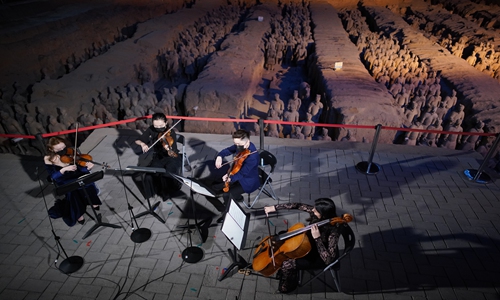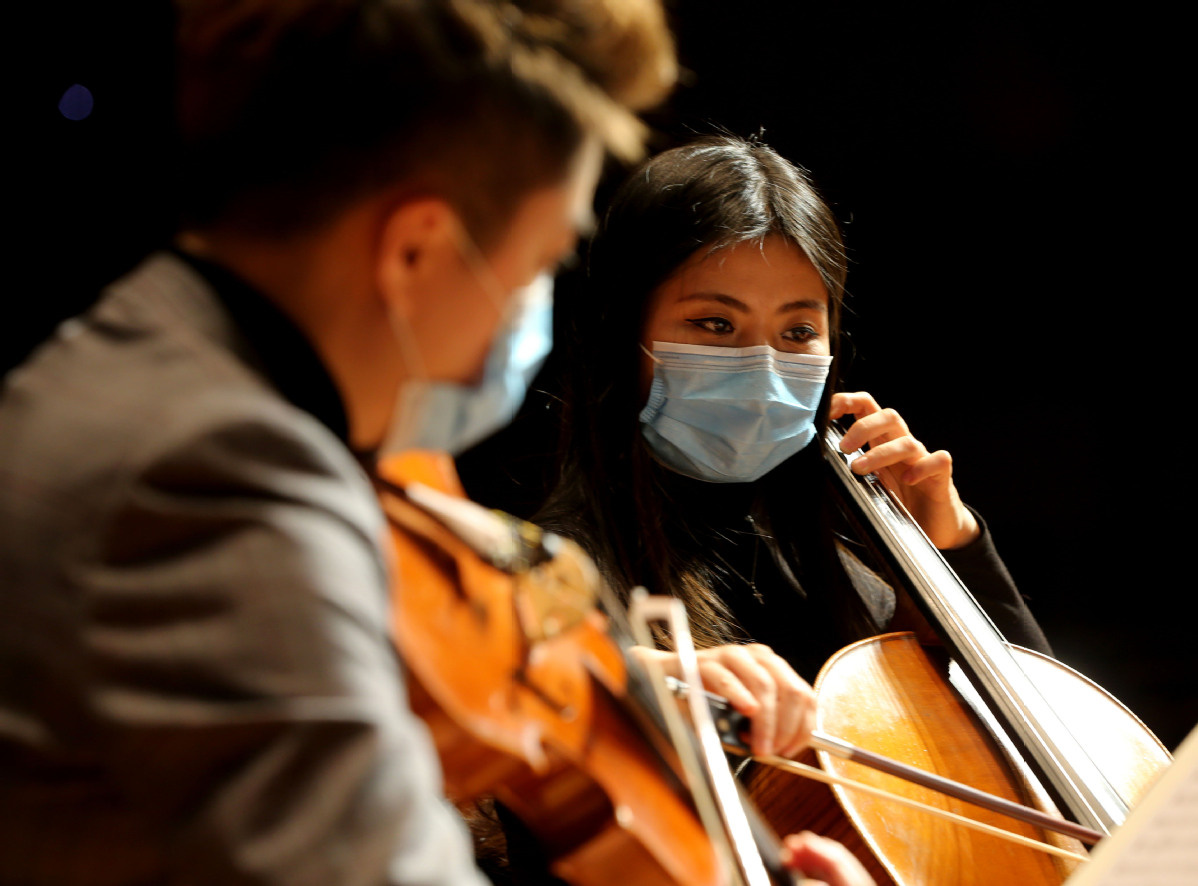
During the COVID-19 pandemic, the Suzhou Symphony Orchestra has staged online concerts and lectures featuring topics related to various aspects of classical music.
Performing arts venues were dealt a major blow by the contagion. The Xi'an Symphony Orchestra, which normally performs before large audiences, canceled 15 concerts during the spring season.
To remain active during the pandemic, orchestras in major cities and video streaming platform Bilibili began working together to launch live performance events.
The Xi’an Symphony Orchestra’s fanbase on Bilibili went from 200 to over 12,000 in less than one month. And the Shanghai Symphony held an online concert performed by the orchestra’s string quartet and attracted 900,000 viewers.
Katherine Chu, executive director of the Suzhou Symphony Orchestra said, "I think the virus has had a big impact on the classical music market. Online events are a great way to ensure that people still have access to music and for them to keep safe.”
Today’s Story in the Story looks at how China’s classical music orchestras have adjusted to the changes brought about by the COVID-19 pandemic.

Musicians are playing classic music in the Emperor Qinshihuang's Mausoleum Site Museum. (Photo: courtesy of the Xi'an Symphony Orchestra)
The stage of the Xi'an Concert Hall in Shaanxi Province stands eerily quiet, with both the resident orchestra and audiences absent due to the COVID-19 outbreak.
Zhou Huyi, the principal violinist of the orchestra, took to the stage at the concert hall for the first time since January.
Inside the empty venue, he rehearsed with other musicians from the orchestra for a livestreaming concert, which will air on Bilibili, an online video sharing and entertainment platform.
It was the first time that musicians from the orchestra had performed without a live audience. Founded in 2012, the orchestra has recruited musicians from around the country, mostly those younger than 30. To bring classical music closer to the public, it has been looking at different types of performance.
Zhou, who was born and raised in Xi'an and learned to play violin with his father, said, "We usually perform in the concert hall in front of audiences, who sit quietly and watch us play. They give us feedback with their applause and acclaim, and we reciprocate with our music. But a concert without a real audience is a fresh experience for me, which is exciting."
The 27-year-old graduated from the National University of Singapore's Yong Siew Toh Conservatory of Music in 2013 and furthered his studies at the Carl Maria von Weber University of Music in Dresden, Germany, in 2015, where he obtained his master's before joining the Xi'an Symphony Orchestra in 2018.
"For audiences is also a new way to enjoy classical music, which is usually considered a high and serious art form. They don't have to sit quietly and wear formal dress. They can eat, talk and share their ideas by posting comments while watching the performance, which is fun," Zhou said.
Cao Jiwen, branding director of the Xi'an Symphony Orchestra, said the idea of performing a livestreaming concert on Bilibili arose when the orchestra's schedule was put on hold.
"We have built up a stable fan base since the orchestra was formed. With many concerts and public events being canceled or postponed due to the outbreak, people have told us that they are disappointed, and they miss the orchestra's performances. They would love to see a concert, but understand the situation," Cao said.

Musicians from the Xi'an Symphony Orchestra rehearse in the city, capital of Shaanxi province(Photo: China Daily)
Even though the musicians could not get together for rehearsals, they had hours of individual practice at home, and Cao feels the program represents a breakthrough for classical music.
Screens are set up on stage for the musicians to read comments posted by viewers. "It's a different way to interact with audiences, especially young people," Cao said.
"We've seen many theaters and concert halls cancel their shows and even shut down because of the outbreak. It's affecting musicians worldwide," Cao said. "However, we have also found that many musicians have kept their music going, either playing their instruments at home or connecting with fans online."
"Plans have been disrupted, but what we can do is engage our audiences with music as much as possible. Online performances may not be perfect in terms of the sound and visual effects, but they are a solution for both musicians and music lovers," said Li Bao, resident conductor for the Beijing Symphony Orchestra.
(Produced by Nancy Yan Xu, Lance Crayon, and Brian Lowe. Text from China Daily and Global Times.)


